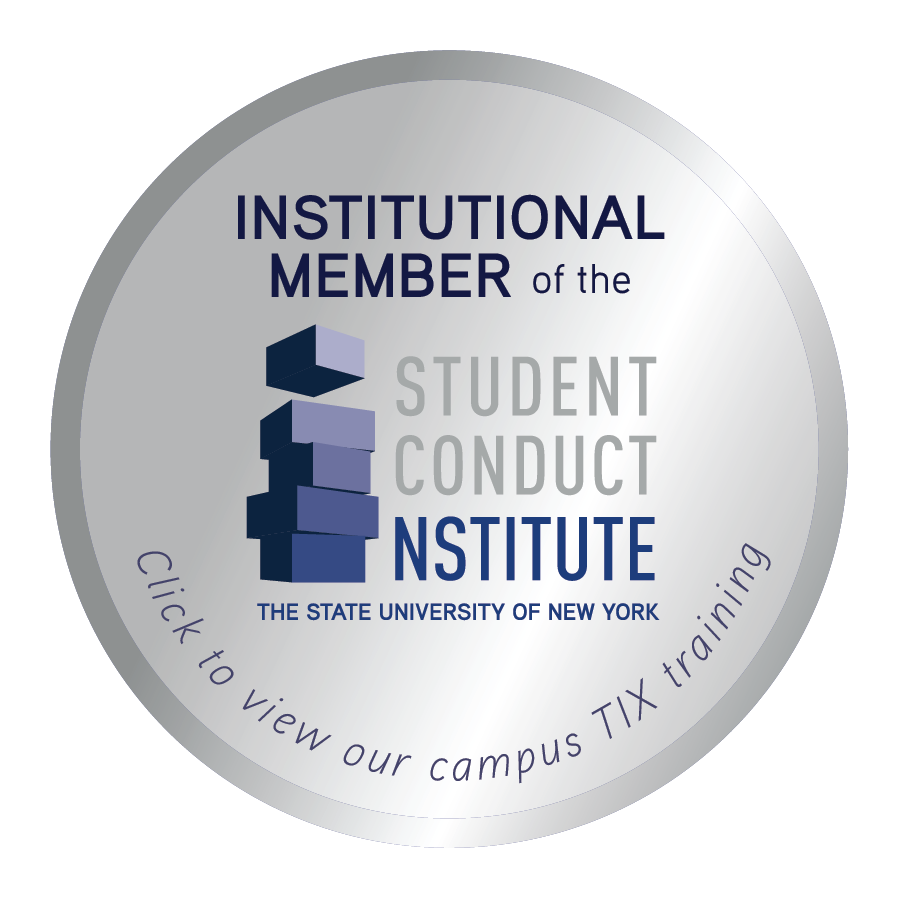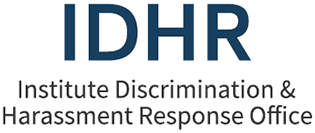§ 106.45 Training Materials
In compliance with the federal Title IX regulations—see § 106.45(b)(10)(ii)(D), which provide that, for all trainings held on or after August 14, 2020, MIT post “[a]ll materials used to train Title IX Coordinators, investigators, decision-makers, and any person who facilitates an informal resolution process” for Title IX Sexual Harassment—IDHR maintains and posts the following training materials:
MIT is a member of the Student Conduct Institute of the State University of New York (SUNY).
SUNY SCI Title IX training materials are linked here: 
Title IX Hearings in a Post-Regulatory World Grand River | Solutions
Hearings 201: Ready, Set, Go! Grand River | Solutions
Members of the IDHR staff, and other MIT community members who support the Institute’s work to appropriately respond to discrimination and discriminatory harassment, are experienced professionals with years of professional education, training, and experience. The training materials included here are posted in compliance with federal regulation and do not represent the full professional history of any one individual.
Title IX Coordinator Training National Association of College and University Attorneys
This course consists of nine modules of class instruction with written materials and assessment. Lecture topics include: Title IX definitions, jurisdiction, and preliminary matters; conducting a Title IX investigation; hearings and appeals; anatomy of an OCR investigation; Title IX training and policies, and athletics equity and the effect of the new regulations on athletics departments.
This training was completed by Sarah Rankin, IDHR Director, and Sarah Affel, IDHR Manager of Investigations.
Rationale Writing Workshop for Decision-Makers and Investigators ATIXA
This 4 hour (half-day) workshop is fully engaging and hands-on for decision makers and investigators. Often as part of an investigation report, and always as part of the hearing and appeal outcome letter, a rationale must be provided. This rationale includes an analysis of all the facts considered, policy application, a credibility assessment, application of the standard of proof, finding, final determination, elaboration of sanctions, and the reasons therefor.
MIT Prohibited Conduct: Discrimination and Discriminatory Harassment MIT Institute Discrimination & Harassment Response Office
Adjudication and Appeals: Discrimination and Discriminatory Harassment MIT Institute Discrimination & Harassment Response Office
Higher Education: Digital Abuse and Safety Training EndTAB | End Technology-Enabled Abuse
EndTab presented content around the role of technology in student life, common forms of tech-enabled abuse, and how to incorporate digital safety into the work of preventing gender- and sex-based discrimination.
Adjudication and
Appeals: Discrimination
and Discriminatory
Harassment



